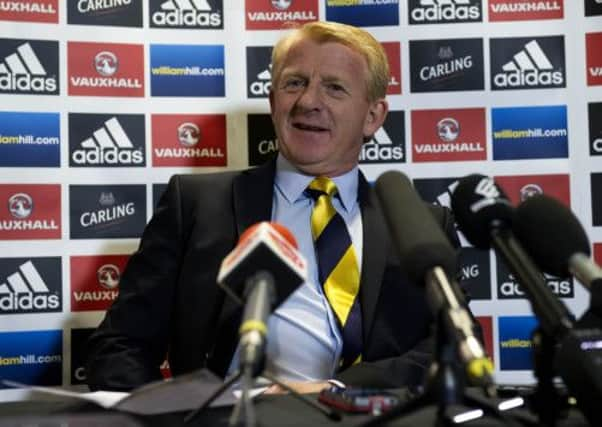Scotland squad: ‘Lengthy summer breaks should go’


It is a mindset Scotland manager Gordon Strachan is keen to address, and not simply by trying to end the country’s lengthy absence from either the World Cup or European Championship finals every two years.
As he approaches the final international match of this season, the national coach is aware of a sense that the scheduling of the World Cup Group A fixture against Croatia in Zagreb on 7 June is an inconvenience, especially now that all hope of reaching the 2014 finals in Brazil have been extinguished. So, by naming an extended 28-man squad yesterday, Strachan was perhaps preparing for call-offs from players who might see the trip to the Balkans as an unnecessary interruption to their holidays. He is certainly keen to instil an attitude among the Scotland players which will see them fall more in line with their more successful continental counterparts.
Advertisement
Hide AdAdvertisement
Hide Ad“European players don’t think about breaks,” said Strachan. “When I speak to them, they think football is an all-round business. Their mentality is that they get well paid and that football is a year-round business. If they get just two or three weeks off, then fine.
“I think our mentality is still ‘Oh, I need six or seven weeks off’. It isn’t like that anymore. The quicker we get away from that mentality, the better.
“We are expecting and hoping the young lads we have included give us that edge to our squad as well, whether or not they play. We are hoping there is going to be pride in the squad. But it is going to be a hard ask for some of them, playing away from home in June after a long season. But it is another test for you as a footballer. You can’t pick or choose when you are going to play in top, top games.”
Scotland’s problems, of course, are not simply in the mind. The standard of player available to Strachan remains his biggest concern with so few operating even close to the highest level of the game.
The relegation of Wigan Athletic, who provide three players in Gary Caldwell, James McArthur and Shaun Maloney has reinforced that issue for the manager.
“It is a worry,” he admitted. “Because, even if you think about our English Premier League players, three of them got relegated. Norwich City and West Brom had decent seasons but won’t be playing European football next season, and they are where we get our other Premier League players from.
“This game is a test for us, a real test. Croatia are a top side. But, if you look at our squad, not many of them play regular European football at a decent level. I know the Premier League is top class but European football is just a bit different. There is more individual ability at the top, top level of international football than in the Premier League. It is an interesting league but you couldn’t tell me it is as good as the German League or Spanish League in terms of real skill.”
Strachan’s decision to hand Brighton captain Gordon Greer his first senior call-up at the age of 32 is an indication of the difficulties he faces in solving the central defensive problem which has blighted Scotland for some time now. Capped three times at B international level, the former Kilmarnock stopper will compete with Caldwell, Grant Hanley of Blackburn, Norwich City’s Russell Martin and Hearts’ Andy Webster for a place.
Advertisement
Hide AdAdvertisement
Hide Ad“You can’t blame these lads for not being the strongest central defenders because they’re the best we’ve got and credit to them for that,” said Strachan.
“It seems to be in the attacking midfield and striking positions where we are strongest. Our physical presence seems to suit that, because they are areas where we don’t have to be big and strong. Because of our genetics, we seem to be okay in that area. It is when we come to real pace and size that we have a problem. So we have to develop physical size but sometimes we just pick them at the age of nine and say ‘right, you’re a centre half’ and that’s them forever. We should develop players, whatever size they are, into football players, whatever position they play. That’s a long term thing and that’s my idea of how football should be taught.”
Veteran Vancouver Whitecaps striker Kenny Miller is recovering from a hamstring injury, but Strachan does intend to include him again next season.